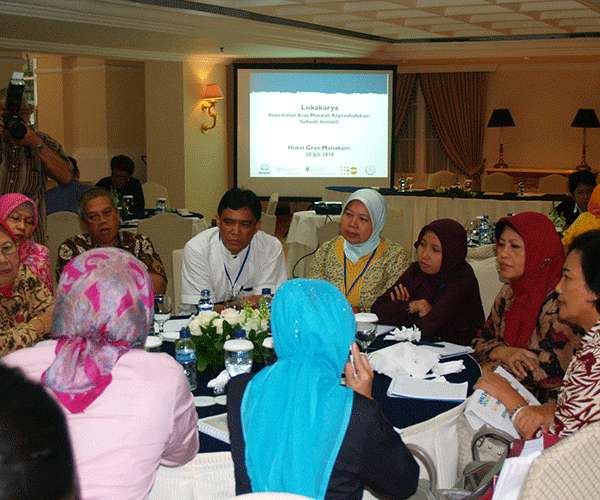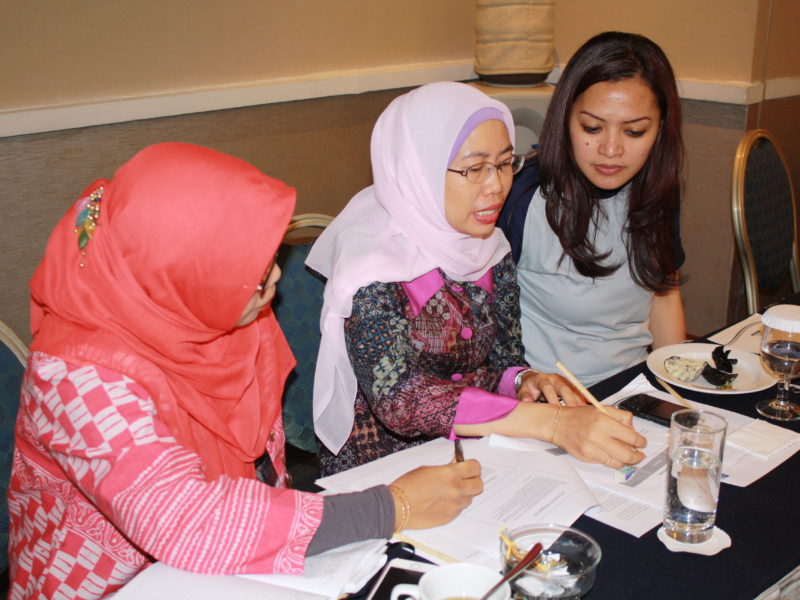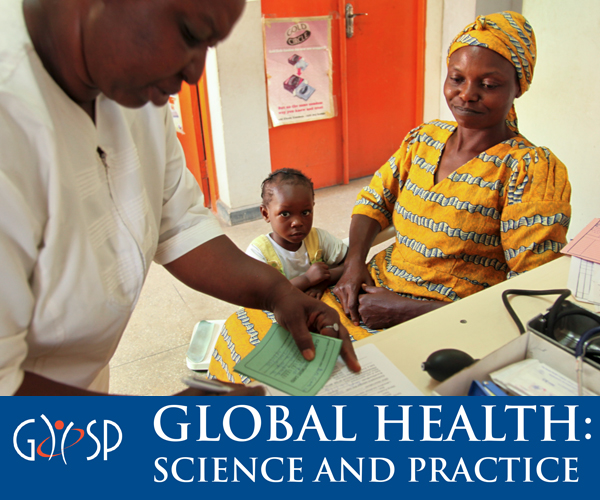World Population Day 2010 focused on the importance of data – including the 2010 population and housing census – for development and policy making. “With quality data we can better track and make greater progress to achieve the Millennium Development Goals, and promote and protect the dignity and human rights of all people,” explained Thoraya Ahmed Obaid, Executive Director of UNFPA.
K4Health, BKKBN and UNFPA sponsored a World Population Day (WPD) kick-off event on July 28th. Attended by representatives from the Ministry of Health and Parliament, local and international NGOs, journalists, and the private sector, the event was a forum for discussion about knowledge management needs, early reproductive health and family planning education, community empowerment, and the development of relevant materials and advocacy tools.
According to recent census data, the total population of Indonesia is approximately 235 million. With an annual growth rate of 1.3%, Indonesia is the fourth most populated country in the world. If Indonesia can curb this growth, it could be on track to the meet the 2015 Millennium Development Goals (MDGs). The country’s contraceptive prevalence rate has increased (from 50% in 1991 to 61% in 2007) as the unmet need for family planning products and services has declined. But while there have been improvements, decentralization of the government and a lack of local government commitment to family planning have significantly impacted population and family planning programs in the region.
One highlight of the WPD event in Indonesia – a discussion about recent social network mapping activities – demonstrated how data can be used to influence family planning policy making. Net mapping activities, using the Net-Map Toolbox methodology, were carried out in Pontianak and Bandung districts and highlighted communication patterns and bottlenecks in the FP budget planning mechanism.
These activities resulted in several recommendations: simplification of the bottom-up district planning process, refinement of the link between reporting and budget planning processes, development of an integrated planning process, and strengthening of advocacy and data analysis skills of family planning officials at the district level. These recommendations will now become part of a six-month K4Health strategy to create an Indonesian E-toolkit focusing on: media advocacy, integration of FP within the larger context of population, health, and environment (PHE), and knowledge management approaches.
Learn more about the Net-Map Toolbox methodology here.
Learn more about CCP’s work on family planning in Indonesia here.





